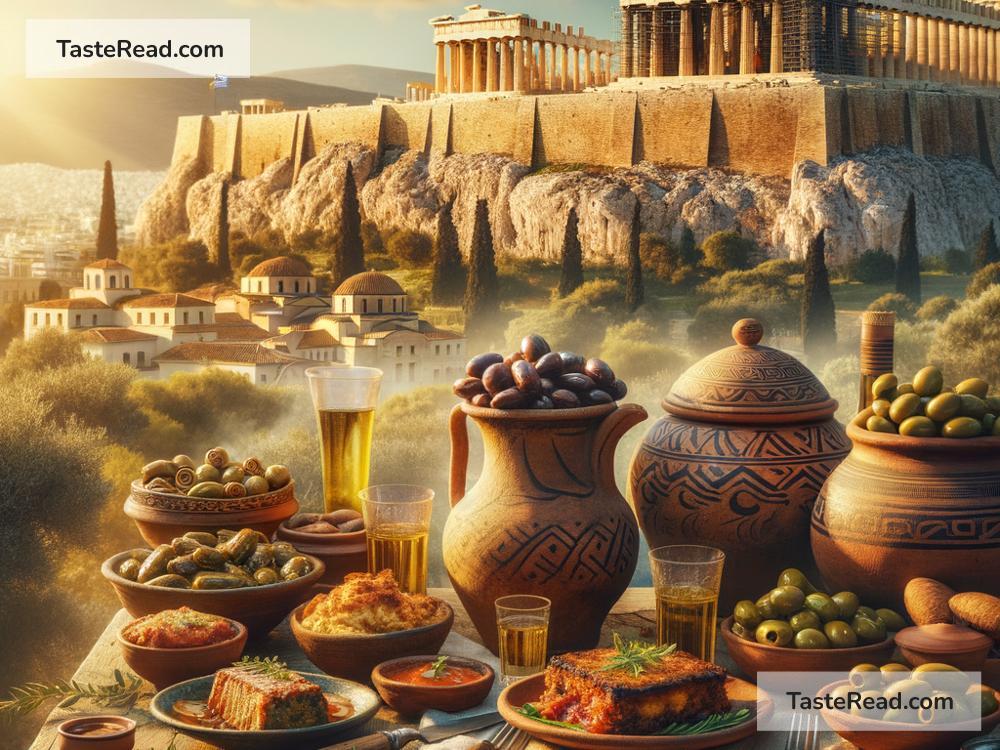Exploring the Ancient Culinary History of Athens, Greece
When we think of Athens, Greece, we often picture the magnificent Acropolis, ancient ruins, and stories of gods and goddesses. But there’s another layer to this historical city that captures the essence of life in ancient times: its culinary history. The foods and cooking techniques of ancient Athens give us a delicious peek into the past, shedding light on how our ancestors lived, celebrated, and, of course, ate. Let’s embark on a journey to explore the ancient culinary heritage of Athens, one that dates back thousands of years, yet continues to influence modern Greek cuisine.
The Staple Ingredients
The foundation of ancient Athenian cuisine was built on what is now known as the Mediterranean triad: grains, olives (and olive oil), and grapes (for wine). Grains, particularly barley and wheat, were the cornerstone, used in breads and porridges, and were essential in the daily diet of Athenians. Olive oil was revered, not just for its dietary importance, but also for its use in religious rituals and as fuel. Wine, diluted with water, was the common drink, enjoyed by all social classes at meals and symposiums, a clear testament to the communal and celebratory role of food and drink in ancient society.
The Role of Vegetables, Legumes, and Fruit
The diet of ancient Athens was not just about bread and wine; it was rich in vegetables, legumes, and fruits. Lentils, chickpeas, onions, garlic, and cabbage were staples, providing essential nutrients and variety to meals. Fruits such as figs, apples, and pears were popular, enjoyed fresh or preserved for out-of-season consumption. This reliance on plant-based foods not only reflects the agricultural prowess of ancient Athens but also offers insights into a diet that was naturally balanced and nutritious, principles that resonate with today’s health-conscious societies.
Meat, Fish, and Dairy
While plants formed the bulk of the ancient Athenian diet, meat was consumed, though less frequently, primarily due to its cost. Sacrificial rituals often provided meat to the community, making it a special occasion food. Pork, poultry, and lamb were the most common meats. Fish and seafood were more accessible, given Athens’ proximity to the sea, and were a vital part of the diet. Dairy products, including cheese made from sheep’s or goat’s milk, were also enjoyed, underscoring the varied and well-rounded diet of the ancient Athenians.
Cooking Techniques and Dining Customs
The ancient Athenians were adept at creating flavorful dishes with limited ingredients and cooking tools. Simple grilling over open fires, boiling in clay pots, and baking in brick ovens were common techniques. Seasonings such as honey, vinegar, and herbs from the thyme and oregano families added depth and variety to their dishes.
Eating in ancient Athens was a communal and structured affair. Meals typically consisted of two main parts: the “deipnon,” a substantial meal with bread, vegetables, and sometimes fish or meat, followed by the “symposion,” a drinking session where wine and intellectual conversations flowed freely. This ritual underscores the social and cultural significance of food and dining in ancient society, elements that are still present in modern Greek life.
The Legacy of Ancient Athenian Cuisine
The culinary traditions of ancient Athens have left a lasting imprint on modern Greek cuisine and the broader Mediterranean diet, celebrated for its health benefits and emphasis on fresh, simple ingredients. Dishes like lentil soup, stuffed vine leaves, and honeyed sweets draw a direct line back to ancient times, showcasing the enduring appeal of these flavors and preparations.
Moreover, the ancient Athenian ethos of communal eating, the celebration of local produce, and the joy of sharing meals offer valuable lessons for our fast-paced, often disconnected modern world. They remind us of the power of food to bring people together, to nourish not just our bodies but our connections to each other and to history.
In exploring the ancient culinary history of Athens, we uncover more than just the origins of dishes. We discover a deep-seated appreciation for the land, the seasons, and the simple pleasures of eating well. It’s a journey through time that invites us to savor each bite, each flavor, as a bridge to the past, and as a continuing story of human creativity, community, and culture.


